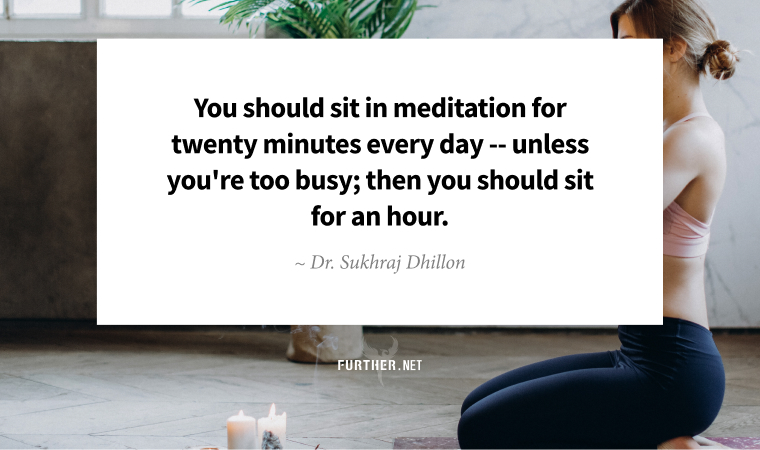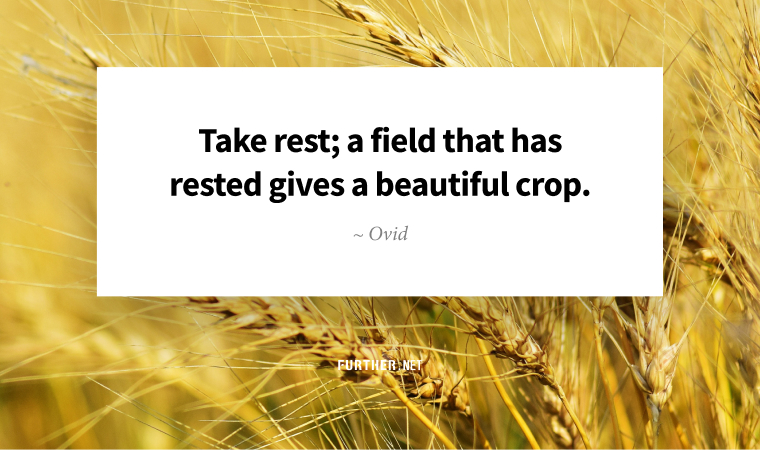
You know meditation is a practice that can vastly improve your life and well being, but your brain is too busy to believe it.
It’s totally understandable.
Midlife is by definition a time of upheaval and transition, and Gen Xers have the extra stress of a global pandemic, financial pressures, family obligations, and loads of other modern burdens.
The good news is that there’s an ancient practice that’s simple to do, easily fits in your busy daily life, and has significant scientifically proven benefits — including stress reduction, better sleep, improved productivity, increased energy, burnout relief, and real shifts in your brain composition for overall well-being.
So how do you know what type of meditation is right for you? And even if you already have a semi-regular or regular practice, how can you take it to a deeper level?
That’s what we’re tackling in this month’s Well + Wealthy presentation, happening Wednesday, April 27 at 3:00 p.m. ET. And just as with our fitness challenge, the W+W community will be helping each other stay seated together. ?
Topics include:
- The three main types of meditation and how they differ.
- The science of meditation and the proven benefits.
- Why thoughts in meditation are a good thing.
- The truth about meditation and mindfulness apps.
- How anyone can meditate, anytime, anywhere — yes, even YOU.
- Details about the upcoming Meditation Challenge (starts May 18th)
Your instructors are Diana Charkalis and our own Trudi Roth, and they have a lot in common: they’re both writers, moms, daughters, partners, friends, pet parents, and — you guessed it — meditation teachers.
You also get instant access to our previous presentations and discussions about fitness strategies and investing during these uncertain times.
Join us in Well + Wealthy today!
Keep going-
P.S. As always, you can earn access to Well + Wealthy by simply referring 3 friends to Further. See the Sharing section at the end of the issue for details and your personal referral link.
Mind Games
We all know the mind impacts our physical performance, but we now know that some of the sensations of physical fatigue are actually generated by the brain. And research further shows that negative beliefs about our capacity for exercise can reduce our endurance and increase our discomfort.
Physical Fatigue is in the Brain as Much as in the Body
Multitasking Life
I really enjoyed this account of someone struggling with a career change. At midlife, our identities are so established that we often can’t let ourselves become who we want to be. And sometimes you just have to realize, “You can be more than one thing.”
You Can Be More Than One Thing
The Long Run
Around here, we consider age 65 as “early retirement.” And faced with the prospect of longer life and healthspans, this article makes some excellent points as to why you should consider an unretirement plan instead.
Early Retirement Will Bankrupt Your Dreams, Here’s Why
Speaking of Mindfulness …
What we call “tunnel vision” is a collapse of your awareness, which is your capacity to notice things around and within you that could be noticed in any given moment. If something isn’t in your awareness, you can’t spot the opportunities all around you.
You Can Only Respond to What You Notice
Rest More, Accomplish More

By Trudi Roth
Here’s a fun challenge for us Type As: let’s set a goal of getting better at resting.
Otherwise, we may never give ourselves a break. In our busyness or bust culture, we’re taught from childhood that constantly striving is not only preferable but it’s also non-negotiable.
And so, we’re a generation of multi-taskers who vow not to rest until we’re dead. That’s literal: full-throttle living leads to stress, anxiety, and burnout. You know, the things that contribute to the leading causes of premature death, like heart disease and compromised immune systems.
Ironically, part of why we demonize rest is that being in a “turned off” state might feel too close to being dead — and we humans, especially in the West, fear that “eternal rest.”
So, let’s not freak ourselves out. Think of rest not as a final state but rather as a starting point for greater creativity, productivity, and personal growth.
A Rest Reset
Falling into the trap of continual doing is easier now more than ever, thanks to our 24/7 culture.
We live in a time marked by speed, hyper-productivity, and the obsession with being successful. However, when you adhere to these schemes, whether consciously or not, you subject yourself to stress. You feel under pressure and have the idea that no matter how much you do, it’ll never be enough. Therefore, it’s easy to feel guilty for resting.
Left unchecked, feelings of inadequacy and imposter syndrome can lead to next-level workaholism, productivity dysmorphia: the inability to recognize our own successes.
If that last sentence felt familiar, consider checking your associations with rest. Do you follow rules like “don’t waste time,” which equate taking a break with laziness or failure? Do you overwork to avoid uncomfortable feelings? Have unhealthy obsessions like perfectionism overtaken your life?
If that resonates, try seeing rest as the yin to work’s yang. Your most fruitful, effective life lies in the balance.
Rest in Piece
While sleep is an important form of rest, it’s not the only kind. Enjoy bite-sized respites by sitting quietly, gazing out a window, listening to music, or doing a puzzle — however you chillax best. Meditation is another great way to give your central nervous system a break: research shows your brain goes into an alpha/theta wave state that’s two to five times more restful than sleep.
By doing “nothing,” you’re actively refuting the fallacy that rest isn’t productive.
It’s been repeatedly proven that when you make responsible use of your freedom, you’ll achieve the best results. In other words, the ideal is to act autonomously and not due to the conditioning of your fears or prejudices.
In other words, give your hang-up about relaxing a rest. That will give your body a chance to do essential work: regeneration and rejuvenation.
Why Do You Feel Guilty About Resting? (Exploring Your Mind)
further: flashback
 The Cult – Rain
The Cult – RainLove, 1985
The Cult shifted from post-punk, to psychedelia, and then to down-and-dirty blues metal … all during the 1980s. I enjoy it all, but songs like Rain are why their album Love is one of my all-time favorites (track six “The Phoenix” inspired the Further logo). (YouTube)
further: sharing

Further subscribers earn $MOVE coin by sharing Further with friends to gain access to our exclusive membership community Well + Wealthy. Get your own free weekly dose of health, wealth, travel, and happiness advice here, and find out all the details on our referral program.
Thank you for sharing Further!
